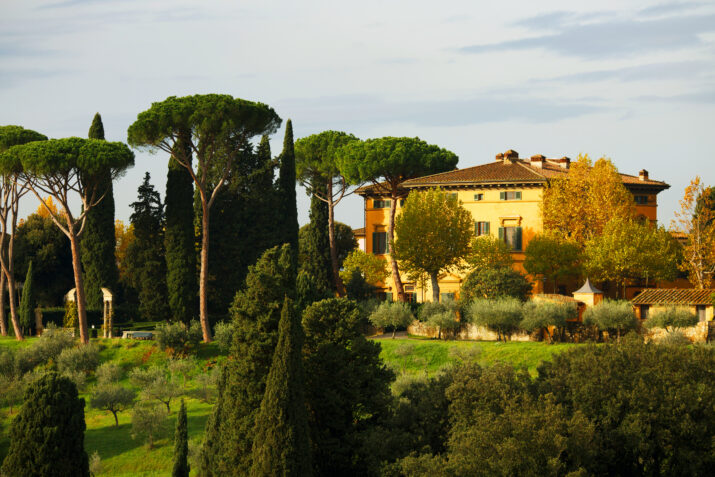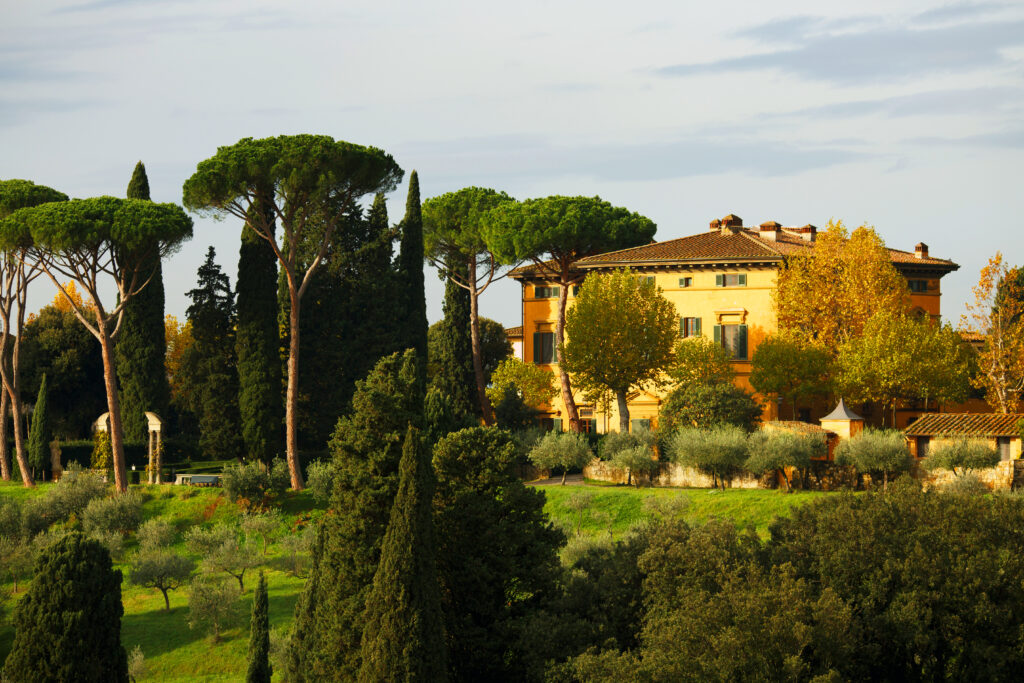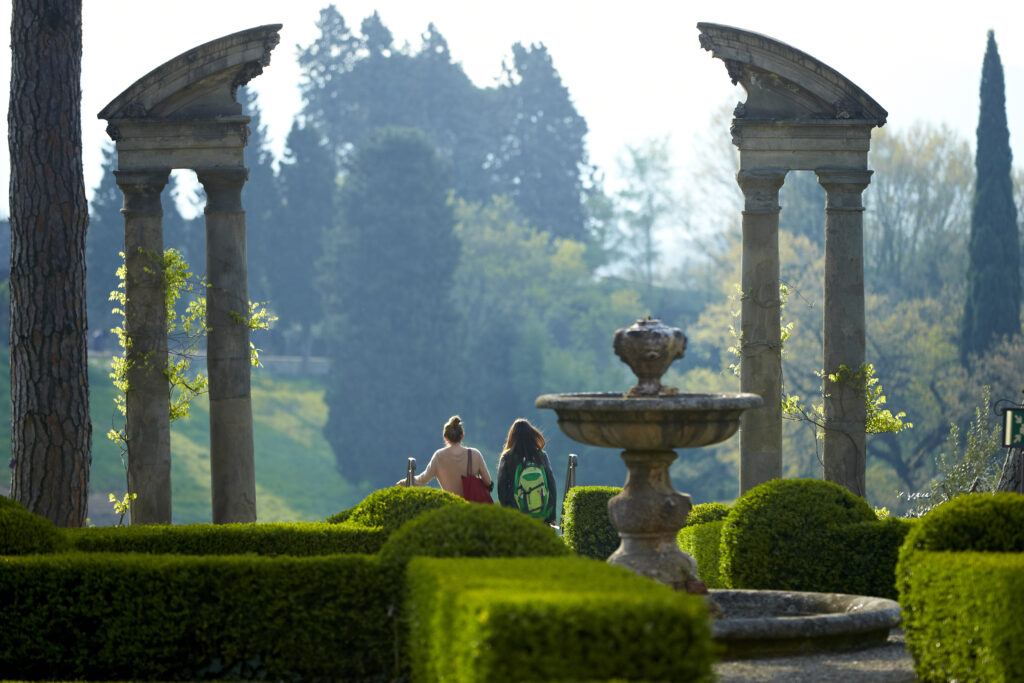

A photo of NYU Florence
Discovering the Mediterranean at NYU’s Center for European and Mediterranean Studies
The Mediterranean has long been a meeting point of civilizations, a space where cultures intersect, and ideas traverse borders. At NYU’s Center for European and Mediterranean Studies (CEMS), this dynamic history and contemporary reality are examined through interdisciplinary research, faculty expertise, and diverse learning opportunities. Through classroom discussions, collaborations with global scholars, and study-abroad programs, students explore the Mediterranean as both a historical region and a modern landscape.
CEMS examines the Mediterranean beyond geography, addressing key questions: How do migration patterns reshape borders? How do art, language, and culture define identities? How have citizenship and belonging evolved in this contested region? As a bridge between Europe, the Middle East, and North Africa, the Mediterranean is central to understanding European policies on migration, economic integration, and cultural identity.
These questions are brought to life by CEMS’s faculty, such as Visiting Assistant Professor, Dr. Isabella Trombetta, whose research explores migration and citizenship, the Mediterranean’s political landscapes, and humanitarian interventions in search and rescue operations. Dr. Trombetta’s work offers students a nuanced perspective on how migration policies influence human experiences emphasizing the lived realities behind migration trends, economic strategies, and cultural identities. The Visiting Professorship in Catalan Studies, established with the Institut Ramon Llull, brings a vital Catalan perspective to CEMS’ Mediterranean focus. In November 2024, Elvira Dyangani Ose, director of the Museu d’Art Contemporani de Barcelona (MACBA), engaged students in analyzing art’s role in shaping views on displacement, identity, and belonging. Through discussions on cultural heritage, she critiqued the limitations of decolonization efforts in Spanish museums and advocated for a deeper historical approach to addressing structural inequalities within institutions.
A Network of Resources
CEMS students gain access to an extensive network of NYU research centers, creating a multidisciplinary environment for studying the Mediterranean. The Casa Italiana Zerilli-Marimò promotes deeper explorations of Italian history, art, and politics, while the Espacio de Culturas @KJCC fosters community, conversation, and dialogue in relation to the peoples, cultures, languages and ideas that circulate within, between, and beyond Spain, the Iberian Peninsula, and the Americas. For those interested in the Mediterranean’s southern and eastern dimensions, the Hagop Kevorkian Center for Near Eastern Studies offers essential resources on the region’s relationship with the Middle East. Additionally, the NYU Migration Network provides a platform for collaborative research on migration—a central theme in Mediterranean studies today.
These interconnected institutions create a thriving academic ecosystem that enables students to engage with the Mediterranean from a range of perspectives, whether through historical analysis, cultural studies, or policy research.

Two students walking at NYU Florence.
Immersive Study Abroad Opportunities
Studying abroad is central to the European and Mediterranean Studies program. NYU’s campuses in Athens, Florence, and Madrid offer immersive experiences: Athens explores classical antiquity’s influence on philosophy and politics, Florence highlights Renaissance art and innovation, and Madrid examines Spain’s evolving geopolitical role. A semester abroad provides students with first-hand experience in the Mediterranean’s rich cultural and historical significance.
The Mediterranean as a Living Lens
At CEMS, the Mediterranean is a lens through which broader questions of identity, belonging, and transformation can be analyzed. Borders in this region are not defined as fixed lines but rather shifting spaces shaped by cultural exchange, historical developments, and political negotiations. By examining these fluid boundaries, students develop a nuanced understanding of the Mediterranean as a region, its place in Europe and globally, and are prepared to engage in discussions of its past, present, and future.
Author Bio
Nicole Kruse is Master of Arts in European and Mediterranean Studies candidate ’25.




